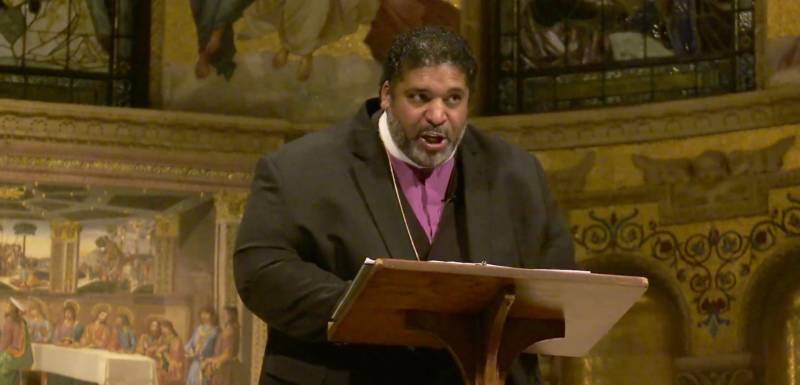As we commemorate Martin Luther King Jr. this week, it's easy to fall into hero worship. He was so young when he ascended into leadership in the civil rights movement. He was so charged with spiritual righteousness of a kind we rarely see today. He was so eloquent.
Read just a little bit of his famous last address before he was assassinated, "I've Been to the Mountaintop," delivered at Bishop Charles Mason Temple in Memphis, Tennessee:
We've got some difficult days ahead. But it really doesn't matter with me now, because I've been to the mountaintop. And I don't mind. Like anybody, I would like to live a long life—longevity has its place. But I'm not concerned about that now. I just want to do God's will. And He's allowed me to go up to the mountain. And I've looked over, and I've seen the Promised Land. I may not get there with you. But I want you to know tonight that we, as a people, will get to the Promised Land. And so I'm happy tonight; I'm not worried about anything; I'm not fearing any man. Mine eyes have seen the glory of the coming of the Lord.
In the years that followed his death, King's commitment to spiritually based, non-violent civil disobedience has been ridiculed and vilified by some of those frustrated with what he failed to accomplish in his short life. But it's also true that year after year, we celebrate and idolize the man. History books written for children simplify the civil rights movement so that King stands alone, an iconic prophet standing by the Washington Monument, impossible to emulate.
"King's agenda was fulfilled not during the 1960s. If he were here on his 90th birthday, this is what he would be telling us," said Clayborn Carson, Stanford history professor and founding director of the University’s Martin Luther King, Jr. Research and Education Institute.
To celebrate the 90th anniversary of King's birth, Carson reached out to a speaker some call the MLK of today, the Rev. Dr. William Barber II of Greenleaf Christian Church in North Carolina.

